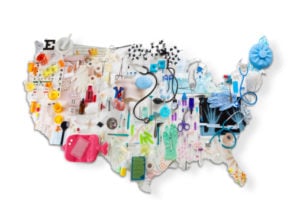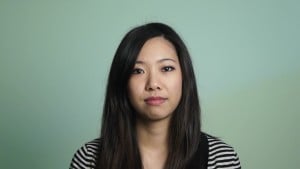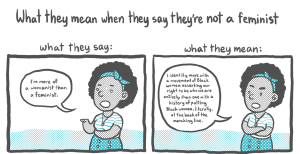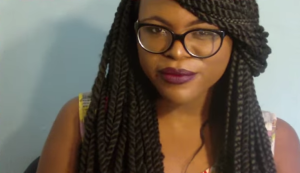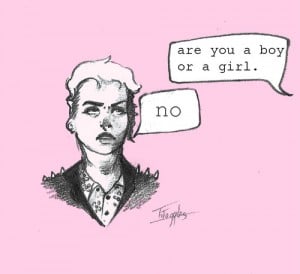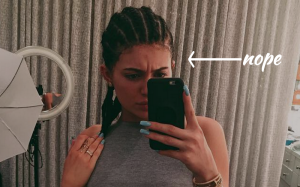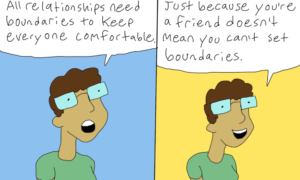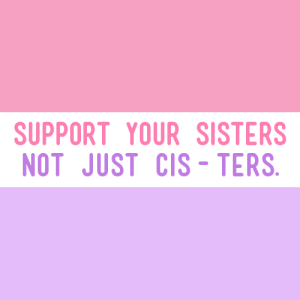Originally published on The Establishment and republished here with permission.
With all the recent public discussion about the Affordable Care Act and women’s access to health care, I’ve seen a lot of posts urging people to “seek healthcare now, while you still can.”
They suggest that readers stockpile their medications, schedule all their annual visits, and look into long-term birth control like IUDs.
These tips are meant to help and will help many.
But, they almost always leave people with disabilities and chronic health conditions out of the conversation – and we’re arguably one of the most vulnerable groups that can be affected by universal healthcare laws.
While some medications can certainly be stockpiled (my dad has been stockpiling his acid reflux and allergy medications for over two years now in case he ever loses coverage again), many can’t, including medications like chemotherapy, insulin injections, birth control, many of those for mental health conditions, and any controlled substance.
Stocking up on meds is a good idea for the basically healthy and able-bodied, but it isn’t feasible for many of the people who are in the most danger from losing their prescription coverage.
“Get an IUD now before birth control stops being covered” is also fantastic advice – except for all the people it leaves out. I’m on a daily hormonal birth control entirely for serious medical reasons. I’d be physically devastated if the pill became prohibitively expensive, whether I got an IUD or not.
There are also plenty of people who can’t choose IUDs because their bodies will reject them, or they won’t be able to physically get it implanted to begin with. By treating IUDs as an imperative, we risk not only ignoring these people but making them feel alienated and hopeless.
Effective healthcare activism and advocacy needs to include, and even foreground, disabled and chronically ill people. We need to actively make sure our activism is not only accessible, but also fighting for the people who are the most vulnerable.
If you’re writing about what people can do if they lose health coverage, make sure your tips are as inclusive as possible.
I understand it’s impossible to predict individual situations. And some people may be in a particularly complicated one, but helpful tips about what to do after ACA repeal need to include disabled and chronically ill people.
It isn’t enough to suggest that we just schedule our doctor’s appointments now, as many people see multiple specialists that require months (or years) on a waiting list, or who are across the country and require extensive travel and lodging to see.
Ask yourself: Are my tips useful for people who need regular, sustained access to options like doctor’s visits, visits to specialists, medication refills, and insurance coverage for mobility devices, physical therapy, therapy appointments, and service animals?
Do my tips include people with one or more pre-existing conditions? Do they include people with terminal or mental illnesses?
Consider collective action that could help protect the most vulnerable.
After the election in November, I saw several grassroots databases circulating online, which collected information for insured cis people who would be willing and able to get hormone prescriptions for trans people if their healthcare access or transition coverage was cut off.
These documents listed out the kinds of medications that could fill in for transitional hormones, reasons they might be prescribed to a cis person, how to talk to your doctor about getting them, and how to send them to trans people who had lost access to health care.
These kinds of databases obviously don’t work for every medication, but they could be tremendously helpful and potentially life-saving for some, like birth control pills, acid reflux medication, common allergy medications, or non-controlled painkillers.
I’ve gotten my doctor to prescribe acid reflux meds and allergy meds to me so I could give them to my dad when he was uninsured, so I know it’s possible to get both prescribed without causing a problem.
Not all protective measures will actively fight the repealing of the ACA or the creation of an inclusive replacement – some can focus on helping those who are fighting for their lives in the interim.
If you’re holding in-person advocacy events, such as rallies, make sure they’re accessible and that disability is at the forefront of the event.
As Emily Ladau discussed regarding the Women’s March, rallies and other events about the ACA should include and center disability and accessibility. The best way to do this is to get disabled and chronically ill people involved from the beginning, and include the disability community every step of the way.
Ask questions like: Are there ramps and elevators anywhere that requires stairs to get inside? Will it be easy for someone to bring their service animal here? Is the event accessible for people using mobility devices like wheelchairs, canes, walkers, and scooters? Are there resting areas for people who need them? Does the event require long periods of standing or walking?
Are all my signs, pamphlets, and other reading materials accessible to people who are blind or low vision? Are any audio components accessible to deaf and hard of hearing people? Will this event be difficult for people with sensory processing issues, and can I provide an area where they can go if they need space and quiet?
How can I keep disabled (and multiply marginalized) people safe if our event, rally, or protest receives any harassment or violence from bystanders or law enforcement?
If your work involves advocating for a replacement for the ACA, include and center disability in this discussion.
As a disabled person, the words “healthcare” alone can make me start to panic. Even in feminist circles, I’m always aware that my health care needs are far greater than most abled people’s, unless they happen to have a health emergency – and that many abled people are willing to leave me without access to adequate, affordable healthcare.
If you’re working to advocate for a replacement for the ACA, make sure the work you’re doing includes disabled and chronically ill people, as well as other marginalized groups that struggle to get adequate health care access: LGBTIA+ people (particularly transgender people), people of color, people with mental illnesses, low income communities, Alaska Natives, and Native Americans, and especially folks at the intersection of multiple marginalized identities.
Include disability in your larger framework for intersectional feminist activism.
As a queer/trans disabled person, I’m often at the forefront of my friends’ and colleagues’ minds when it comes to panels and events about diversity and inclusion.
Because I’m also a member of the nonprofit organization, We Need Diverse Books, and a regular contributor to many social justice websites such as Everyday Feminism, I think about what it really means to be inclusive on a daily basis.
After the election, I noticed how common it was for the disability community to be left out of people’s minds – whether it was a list of marginalized people affected by Trump’s win, or a discussion of who would be at risk if the ACA were repealed.
Disability is commonly left out of diversity panels, lists of diverse books or authors to read, or any discussion about marginalized communities, even though we’re one of the largest minority groups worldwide.
In order for our activism to be truly intersectional, we need to include disability in all the work we do. If you’re an abled activist, especially on the subject of healthcare, you need to think about how these issues affect people with disabilities. You need to center the voices of disabled activists, and listen, and learn about how you can improve.
Whenever I hear discussions about universal healthcare laws and the activism surrounding them, I get nervous before the conversation even progresses because it’s so common for non-intersectional feminists to completely leave disability at the door.
I’m exhausted by conversations about the ACA that don’t include us. We’re one of the groups most affected by changes to healthcare laws, especially those of us who are multiply marginalized. Fighting for the ACA to exist is important to so many people, but our advocacy needs to be intersectional in order to truly fight for everyone.
[do_widget id=’text-101′]
Alaina Leary is a Contributing Writer for Everyday Feminism. She is a Bostonian currently studying for her MA in publishing at Emerson College. She’s a disabled, queer activist and is on the social media team at We Need Diverse Books. She can often be found re-reading her favorite books and covering everything in glitter. You can find her at her website or on Instagram and Twitter @alainaskeys. Read her articles here.
Search our 3000+ articles!
Read our articles about:
Our online racial justice training
Used by hundreds of universities, non-profits, and businesses.
Click to learn more


